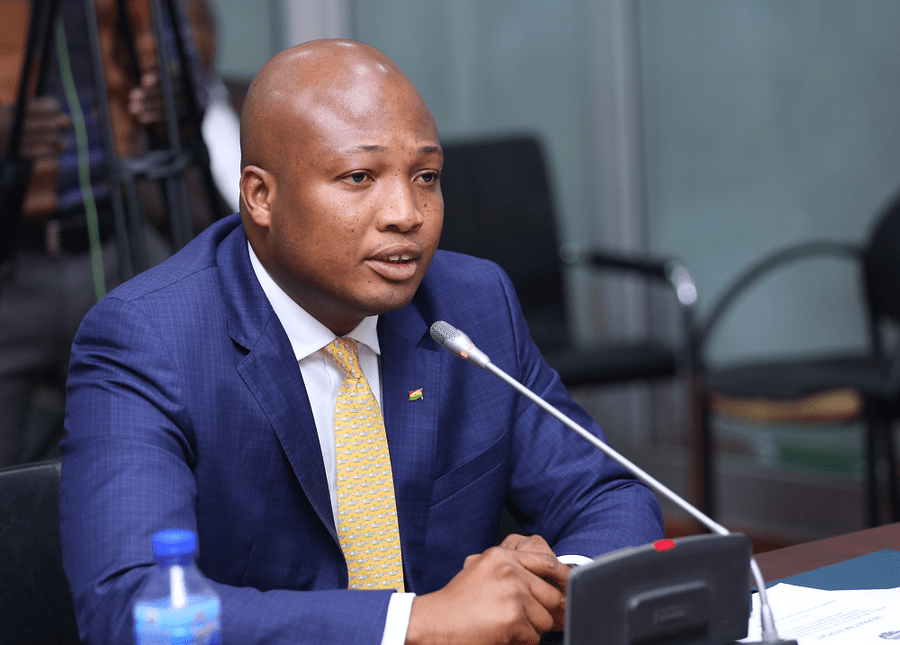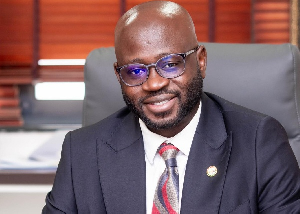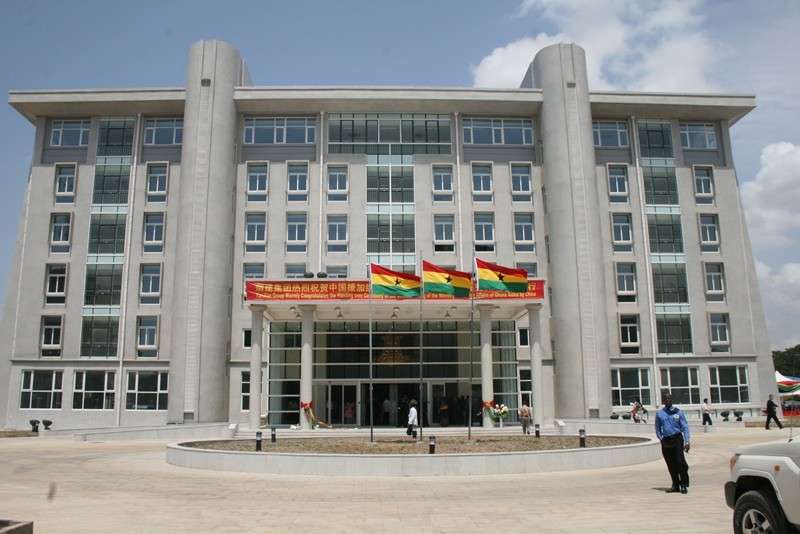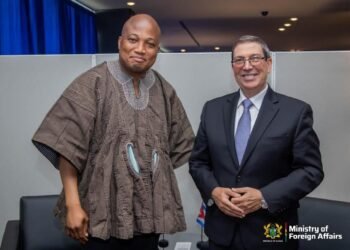The ongoing passport crisis has ignited sharp criticism from Ghana’s parliamentary Minority, with members accusing the Minister for Foreign Affairs, Hon. Samuel Okudzeto Ablakwa, of damaging the nation’s international standing through what they describe as poor leadership and questionable decisions.
The opposition maintained that the minister lacks the diplomatic poise required for the sensitive role, citing his actions as a deviation from Ghana’s longstanding tradition of principled foreign engagement.
Speaking on behalf of the Minority in Parliament, Hon. Nana Asafo-Adjei Ayeh, who also serves as the Deputy Ranking Member on the Foreign Affairs Committee, raised concerns about how the Foreign Ministry has managed key diplomatic projects since the new administration assumed office.
“Since independence, the historical record shows that Ghana has earned global respect by speaking with a steady and principled voice abroad. Successive administrations, regardless of party, have treated diplomacy as a national trust, not a partisan tool.”
Hon. Nana Asafo-Adjei Ayeh
However, he claimed this legacy has now come under threat. Hon. Ayeh expressed concern that the current Foreign Minister has veered off the course of nonpartisan, institutional diplomacy since taking office on February 7, 2025.
“The Minority has observed that Ghana’s long-standing diplomatic continuity now hangs in the balance. Ghana’s reputation abroad has never depended on personalities. It rests on the principled, disciplined work of foreign services institutions.”
Hon. Nana Asafo-Adjei Ayeh
Chief among the complaints is the handling of the chip-embedded passport initiative, a program that the opposition claimed was functioning effectively before it was disrupted by a politically motivated relaunch.

Hon. Ayeh noted that the chip-embedded passport program was originally conceived and implemented under the Akufo-Addo administration.
According to him, all preliminary technical work was completed prior to the change in government, including testing and procurement logistics.
The official rollout took place on December 2, 2024, with 50,000 passport booklets ready and an additional order of 200,000 in the pipeline.
The turning point in the passport crisis, according to the Minority, came when Minister Ablakwa organized what they described as an unnecessary and expensive relaunch of the passport program on April 28, 2025.
The event reportedly cost taxpayers 1.2 million U.S. dollars, despite no meaningful expansion of service delivery or improvements in operational capacity.
Passport Relaunch Worsened Delays, Says Minority
The Minority further argued that the passport relaunch not only failed to address existing challenges but created new ones.
Within just eight weeks of the ceremony, Ghana’s passport office had accumulated a backlog of 32,467 unprinted applications.
Even more concerning, Hon. Ayeh said, was that 68% of applicants who had paid for 15-day express services had still not received their passports after eight weeks.
“When the new minister staged a costly relaunch on the 28th of April 2025, an event that alone cost the taxpayer 1.2 million U.S. dollars, he failed to increase printing capacity or paper supply. Within eight weeks, the passport office was sitting on…unprinted applications.”
Hon. Nana Asafo-Adjei Ayeh

The core of the problem, they contended, lies in the lack of infrastructure improvements, as no extra materials were secured to meet the rising demand.
According to Hon. Ayeh, the relaunch amounted to little more than a public relations exercise that redirected critical funds away from actual service delivery. “The relaunch solved nothing.”
He lamented that the passport crisis has left Ghanaians both at home and abroad stranded and disillusioned. Many who urgently need passports for travel, work, or academic purposes are caught in bureaucratic limbo.
In addition to the operational failures, the Minority also criticized the broader diplomatic posture under the current minister.
They argued that Ghana’s global reputation—built over decades through consistent and principled diplomacy—is being undermined by an approach that prioritizes short-term optics over long-term trust.
Hon. Ayeh emphasized that the Foreign Ministry should not be used as a platform for partisan image-building.
He asserted that the nation’s foreign service institutions had always operated above political interests and urged the government to return to that standard.

“Today, since Honorable Samuel Okudzeto Ablakwa assumed office on the 7th of February 2025, the Minority and Ghanaians globally have observed and witnessed a troubling drift away from the tradition I mentioned earlier.”
Hon. Nana Asafo-Adjei Ayeh
While the Ministry of Foreign Affairs has yet to respond to these specific allegations, the issues surrounding the passport crisis are likely to remain a focal point of national debate.
As public frustration grows and more citizens speak out about delays and inefficiencies, calls for accountability are expected to intensify.
Meanwhile, the Minority insisted that it will continue to scrutinize the Foreign Ministry’s activities and push for corrective action.
They concluded by demanding a full audit of the passport relaunch event and the overall state of the Foreign Affairs Ministry under the current leadership, arguing that only transparency and competence can restore the trust that Ghanaians—and the international community—have traditionally placed in the nation’s diplomacy.
READ ALSO: Davido Fires Back at Critics on X



















